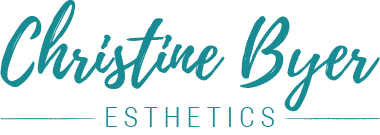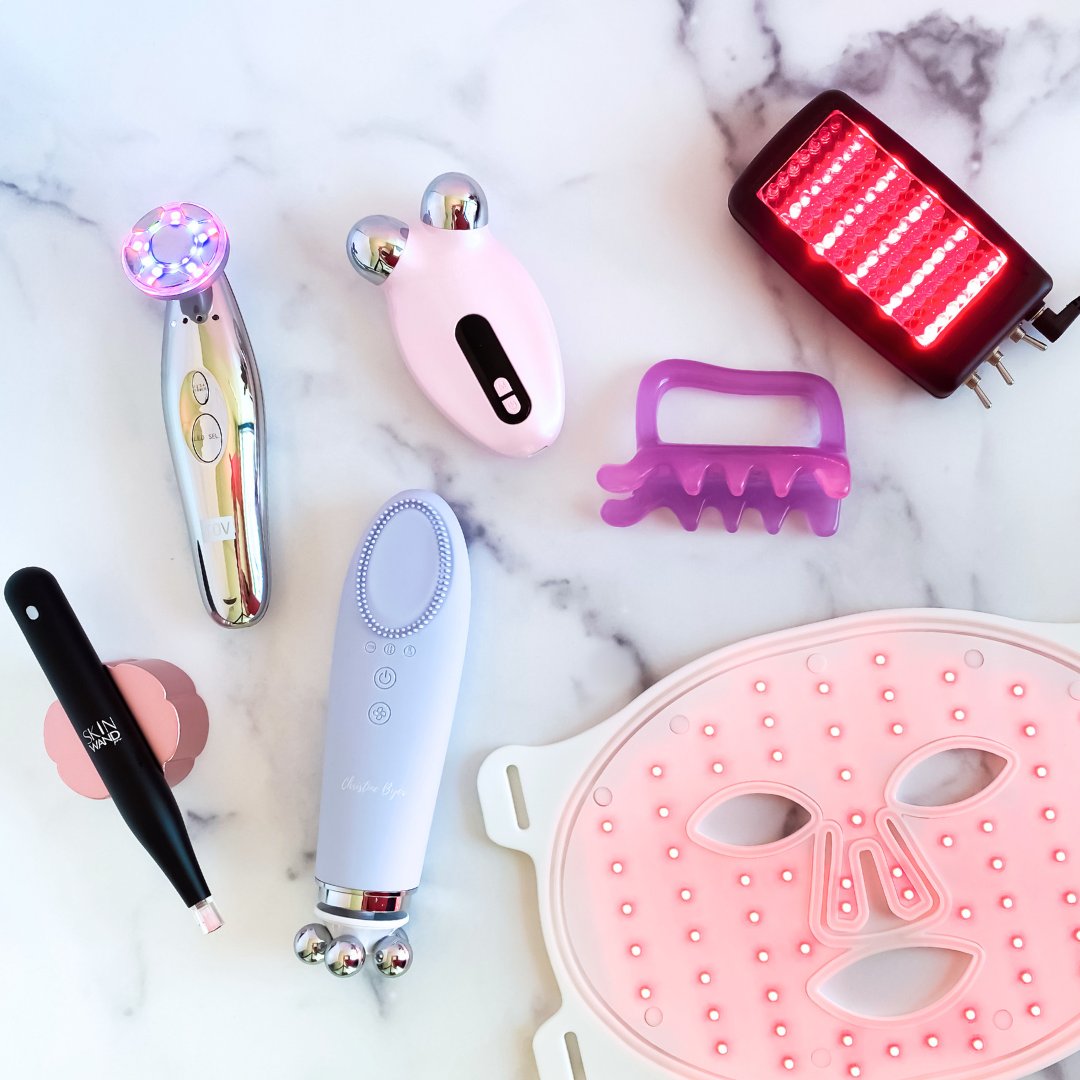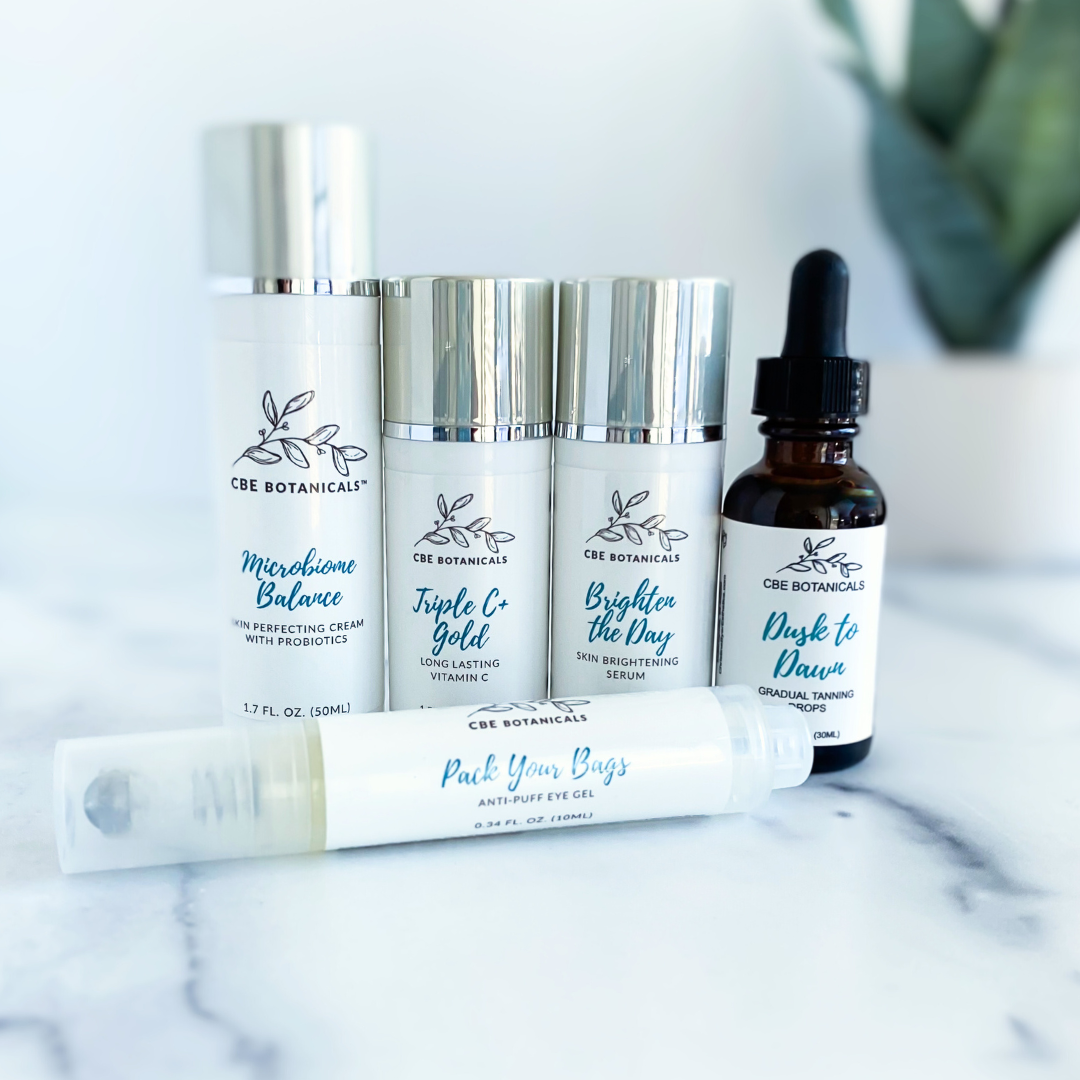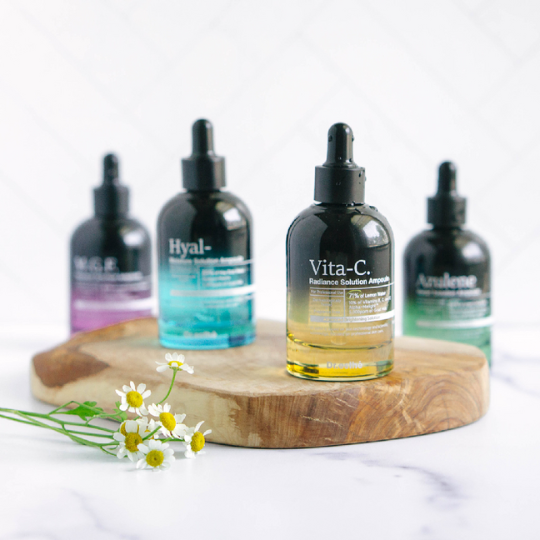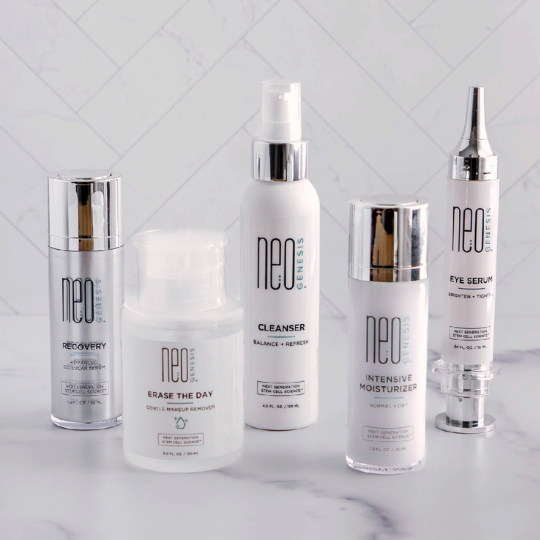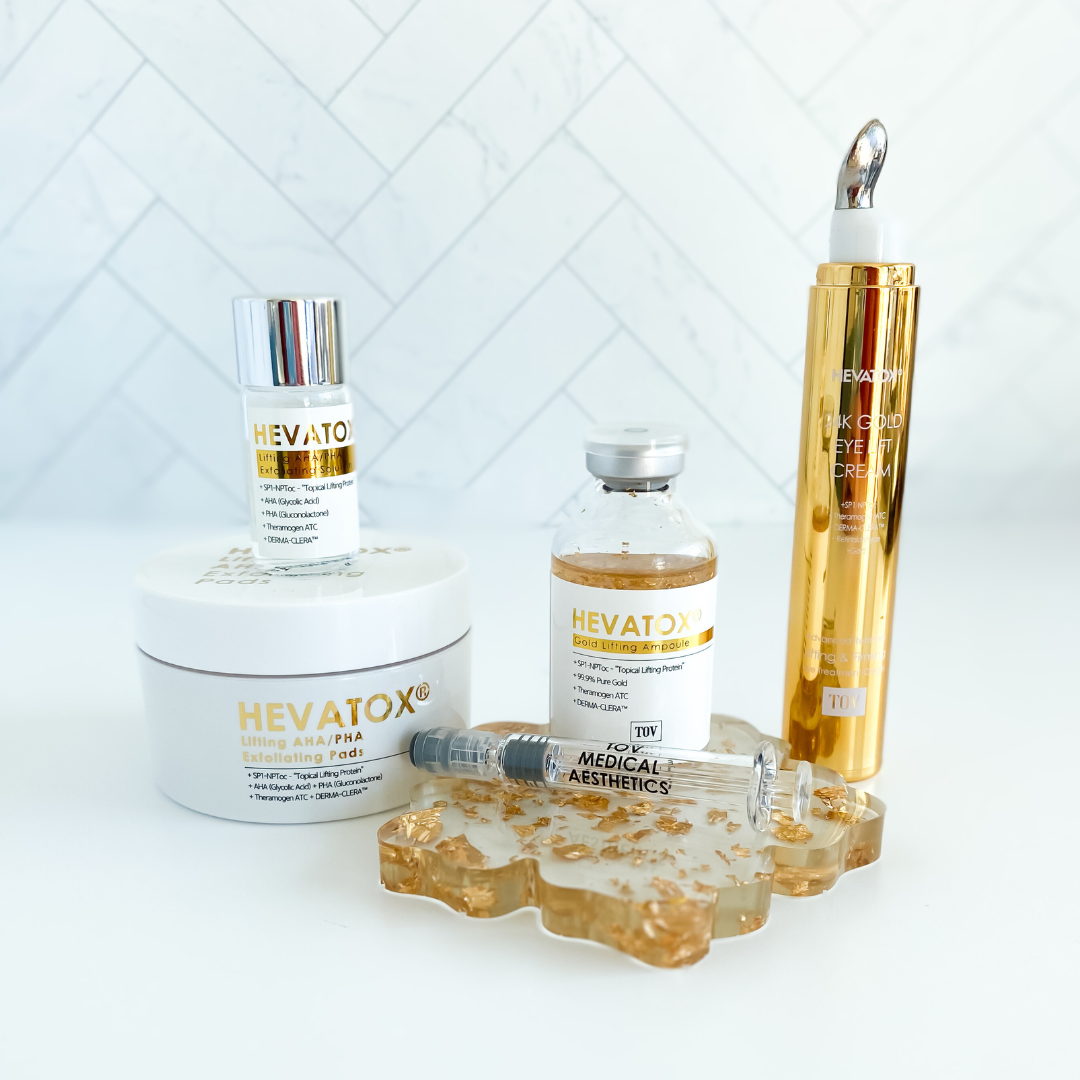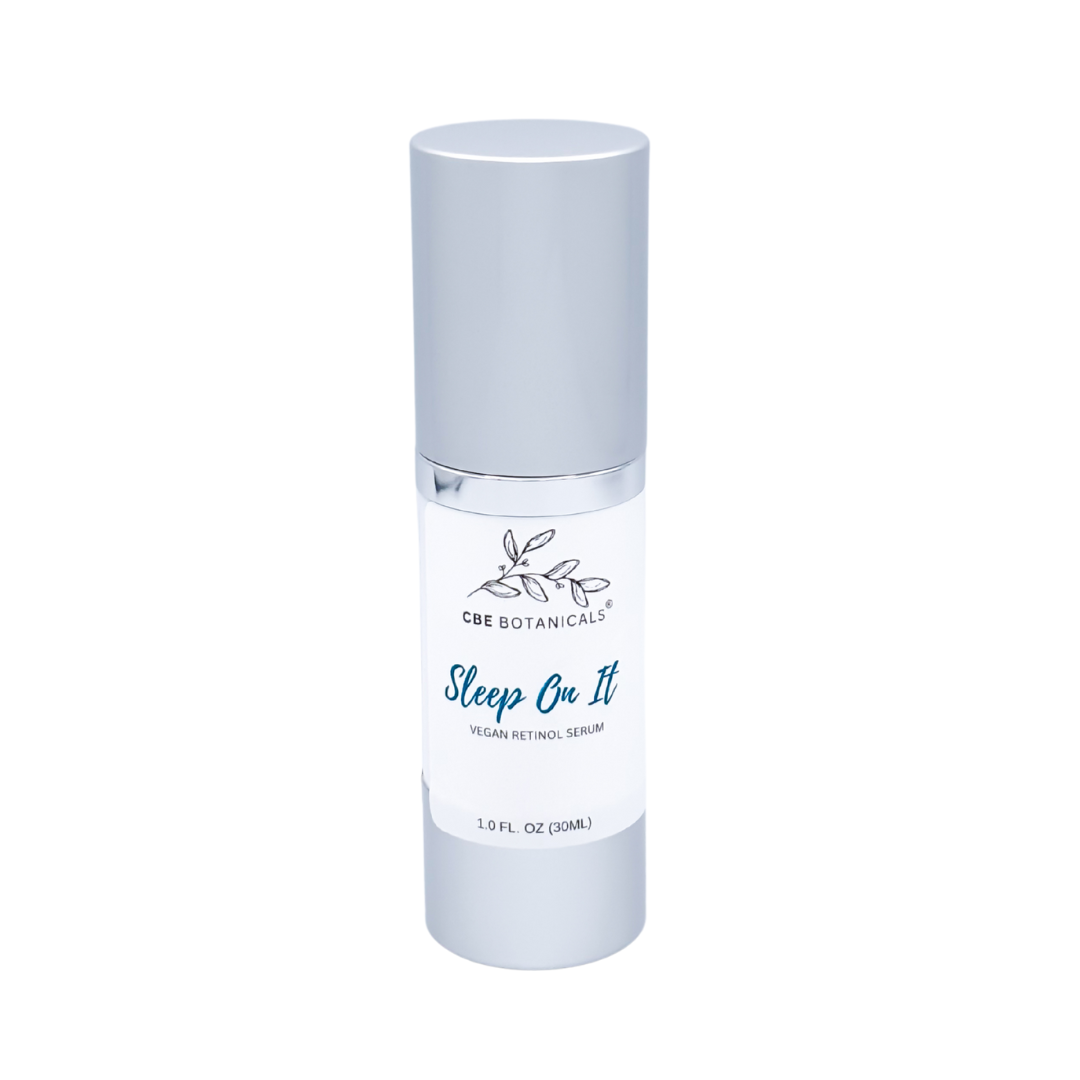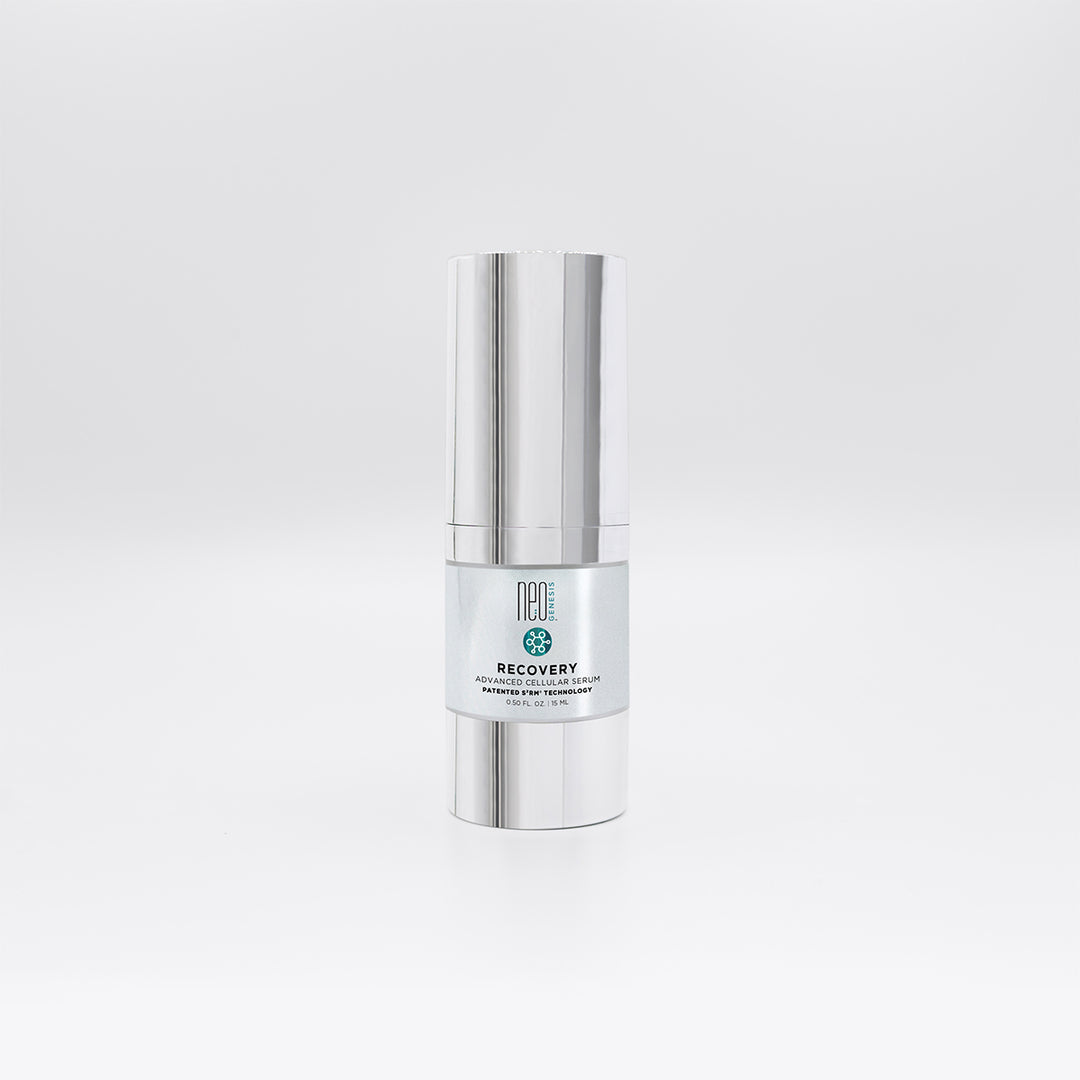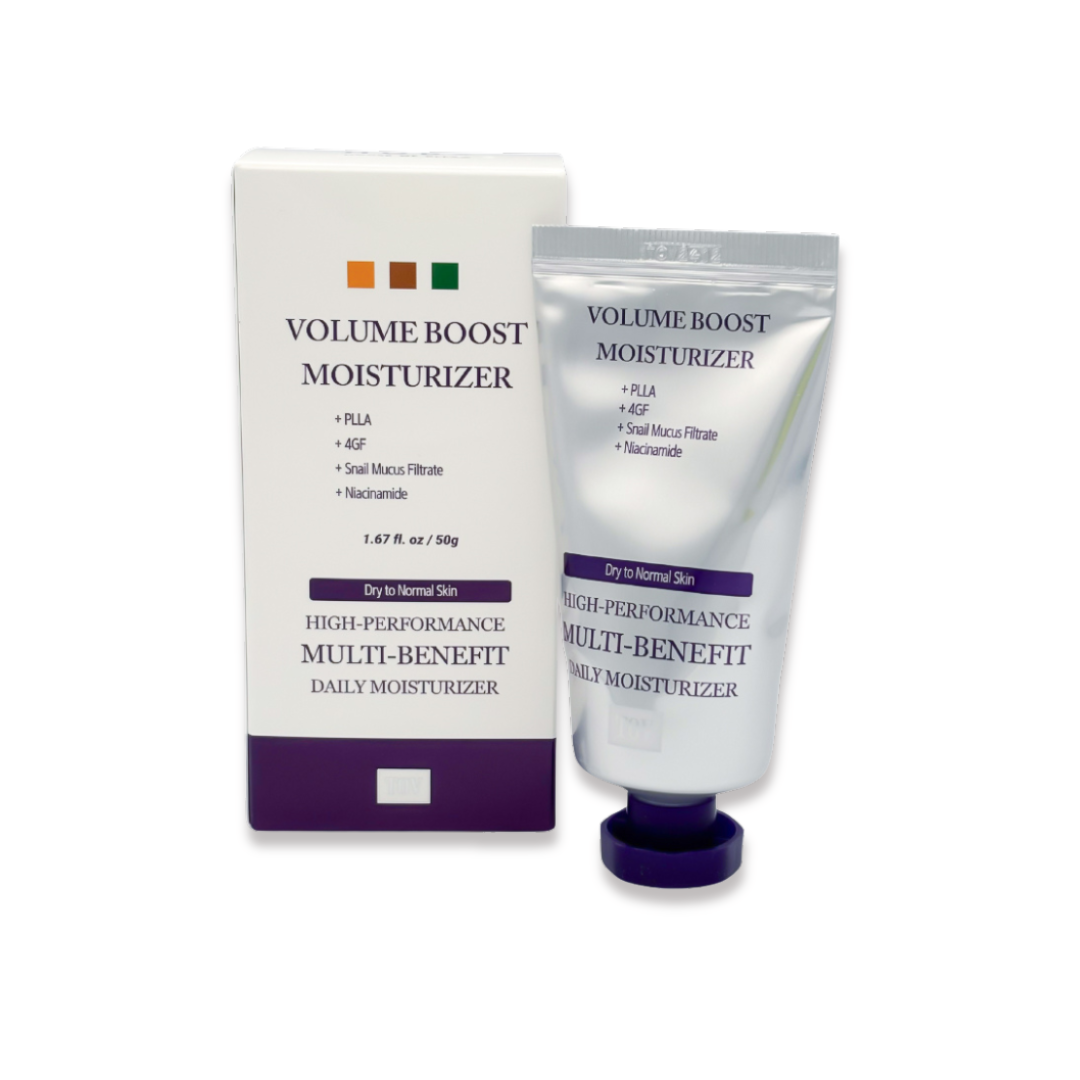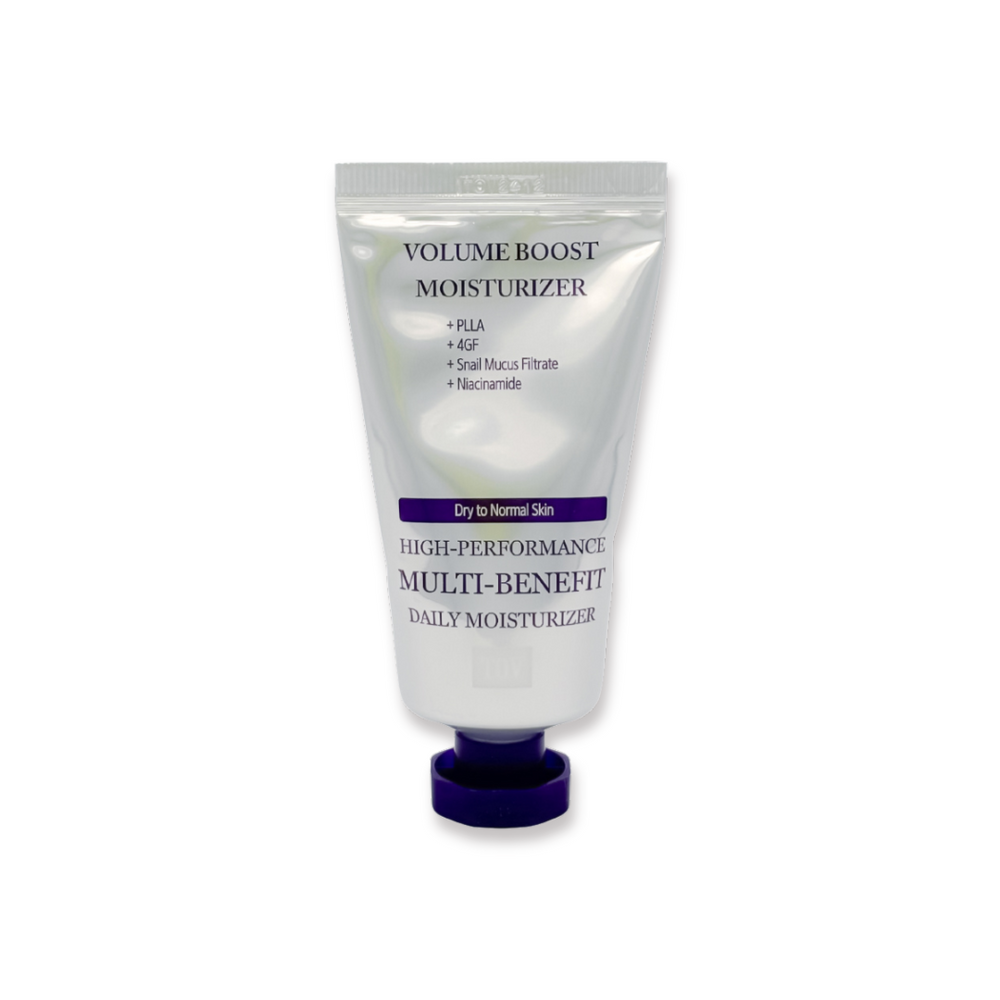What you don’t know CAN hurt you! Many of my clients unknowingly turn to inflammaging skincare treatments to slow and reverse the signs of aging. These treatments deliver desired short-term results, but when used too often they accelerate aging.
Let’s explore if you’re using products and treatments that damage your skin barrier and break down collagen and elastin. Also, how to calm, soothe, and restore your skin.
What Is Inflammaging?
Inflammaging combines the words “inflammation” and “aging”. Understanding the role of inflammation and whole-body health is on the rise, including how chronic inflammation accelerates aging internally and externally.
What Is Inflammation?
Inflammation is the body’s natural healing response. When you get a cut, scrape, or pimple, your immune system sends cytokines to the area. Cytokines stimulate the formation of red blood cells to repair your skin injury. You often experience mild redness, swelling, and inflammation during the healing process.
Short-term (acute) inflammation doesn’t accelerate aging, chronic inflammation does.
How Does Chronic Skin Inflammation Contribute to Premature Aging?

It’s easy to forget, but the skin is your body’s largest organ. When inflammation is chronic, the immune system attacks healthy cells, tissues, and organs. This accelerates fine lines, wrinkles, laxity, and overall skin health.
Your skin must be cleansed, nourished, protected, and revitalized using gentle methods. It requires antioxidant-rich actives the skin recognizes, not harsh chemicals that irritate and inflame.
Your Skin Doesn’t Have to Be Red to Be Inflamed
Be mindful that reddening isn’t the only sign of inflammation. Skin inflammaging is a low-level inflammation that weakens your skin’s barrier function. It makes your skin more sensitive to day-to-day factors that wouldn’t typically cause irritation. It can also break down existing collagen and elastin, further accelerating aging.
Top Causes of Skin Inflammaging

Genetics
How well your body regulates its immune response is influenced by your genetics. For example, genetics may be why you’re more (or less) prone to scarring after acne, scrapes, and scratches.
Local Environment
Your skin comes in contact with pollutants and toxins every day. The pollution and environmental stressors in your local area influence your skin’s health.
Lifestyle
Your whole-body health, stress levels, sleep quality, exercise level, internal hydration, nutrition, UV exposure, whether you smoke, hormonal fluctuations, and other health and lifestyle factors influence inflammaging.
Skincare Routine
The ingredient range and concentration of active ingredients in your daily skincare products can nourish and protect or damage your skin. Misusing and overusing harsh products can contribute to chronic inflammation.
Non-Surgical Skincare Treatments
Skincare treatments can be progressive or aggressive. Progressive treatments use non-invasive methods of stimulating cellular repair, while aggressive treatments intentionally create damage.
Which Skincare Treatments Can Cause Inflammaging?
You can activate cellular repair and boost collagen and elastin production without damaging your skin’s barrier!
I’m not anti any of the treatments or products below. However, I urge you to use these anti-aging solutions sparingly and as directed, as they can contribute to skin inflammaging.
-
Intense pulsed light therapy (IPL)
-
Yag laser therapy
-
Erbium skin resurfacing
-
Chemical peels
-
Microneedling
-
Harsh actives, including some retinol
Short-Term Results Aren’t Worth Long-Term Damage

The treatments above smooth, lift, and brighten your skin, but they’re also a top cause of chronic skin inflammation. So much so, that if you choose to explore your options in cosmetic surgery down the line—your skin may be too damaged. Plastic surgeons won’t complete cosmetic surgery on skin that is too hardened or scarred to “lay properly”.
I’ve had clients who’ve used harsh Retinoid creams for many years with desired results. When their results diminish and their skin becomes lackluster and leathery, they’re shocked to hear it’s the side effect of their retinol. But retinol doesn’t have to be harsh!
CBD Botanicals Sleep On It is a gentle PM retinol serum you can apply daily without worrying about irritation or inflammation.
Signs Your Skin Is Inflammaging

Many of my clients are surprised when I share that their skin is inflamed. Especially those who utilize trending products and treatments to take a proactive or restorative approach to anti-aging. Even more so if their skin isn’t red or irritated and their inflammaging skincare treatments deliver desired results.
Here are some of the signs that I see when skin is chronically inflamed:
-
Leathery, alligator, or hardened skin caused by chronic inflammation.
-
Dull skin, lackluster skin, and uneven skin tone that isn’t easily explainable.
-
Slow wound healing and more frequent flare-ups of acne, eczema, and rosacea.
-
Stress-induced dehydration that intensifies and accelerates fine lines and wrinkles.
-
Premature loss of elasticity, volume, and laxity caused by damaged collagen and elastin.
How to Reverse Inflammaging?
There’s a defining difference between post-treatment reddening and mild sensitivity, and pain and damage. Skincare products don’t have to be harsh to be effective, and skincare treatments don’t have to hurt.
If you identify signs of inflammation, the tips below will help to calm, soothe, and restore your skin.
1. Add More Antioxidants to Your Diet

Ever heard that Victoria Beckham eats grilled fish and steamed vegetables for every meal? While there’s no need to go that extreme, she began this high-antioxidant approach to nutrition to resolve acne and skin concerns.
Processed foods, particularly those high in sugar and trans-fat can cause and intensify inflammation. So, consume more fruits, vegetables, nuts, seeds, and whole grains.
In addition to increasing the antioxidants in your diet, drink about half of your body weight per day in water and antioxidant-rich herbal tea.
2. Use Progressive, Not Aggressive Skincare Treatments

I only use progressive treatments that gently stimulate cellular repair and collagen regeneration. These treatments leave your skin looking better than it did before your treatment.
If your skin doesn’t look better when you walk out of your spa, the treatment was likely aggressive, and inflammation-inducing and I suggest finding a new esthetician.
Also be mindful of the at-home devices you select, investing in professional-grade and esthetician-approved modalities. Always use your devices as advised, because more is not better.
Progressive skincare treatments include:
-
Microcurrent
-
LED light
-
Low-frequency ultrasound
3. Use Post-Treatment Recovery Products
Help your skin recover by adding an extra step or two to your skincare routine in the week post-treatment. The products below contain gentle actives that your skin recognizes. You can also use these products for proactive anti-aging.
NeoGenesis Recovery

If your skin is damaged, inflamed, or healing from an aggressive in-office procedure, I suggest using NeoGenesis Recovery. This holy grain skin healer delivers the benefits of stem cell therapy without an injection. It contains a powerful range of proprietary stem cells, exosomes, antioxidants, peptides, and anti-aging molecules. This formula is so gentle that it can treat and heal chemotherapy and radiation burns.
Apply after cleansing, followed by Aquaphor during your recovery process. After any scabbing, peeling or redness recedes, you can return to using your regular moisturizer. (Usually about 5 days.)
House of PLLA (HOP)
Promoter Repair Cell Moisturizer is a K-beauty product designed to calm inflammation

and restore volume loss. It contains gentle but powerful actives, including PLLA, 4 growth factors, hyaluronic acid, and niacinamide.
I suggest applying this cream daily after aggressive skincare treatments and as a restorative overnight mask.
What is PLLA?
Poly-l-lactic acid (PLLA) is the “secret sauce” within surgical liquid band aids. It stimulates collagen production and promotes your body’s natural healing response. PLLA is a biostimulator. This means it stimulates collagen production and accelerates the healing process. House of PLLA’s product line wraps around hair follicles, creating a matrix of connective tissues underneath this skin to smooth, plump, lift, and volumize.
4. Tailor Your Skincare Routine
Eliminate the guesswork of what your skin needs by working with a tenured esthetician to tailor your skincare products and treatments. What your skin needs can vary greatly from summer to winter and in each season of life.
Let’s Identify if Your Skin Is Inflammaging!
If you don’t have a trusted esthetician, you can join the Christine Byer Beauty Club. In addition to exclusive content, you can ask me questions about your skin and beauty concerns. As an esthetician with over 20 years of experience, I’ve heard and seen it all!
I offer a 14-Day FREE trial so that you can experience my Beauty Club firsthand. My objective is to provide you with confidence that you’re making the best decisions for your skin in every season of life.
